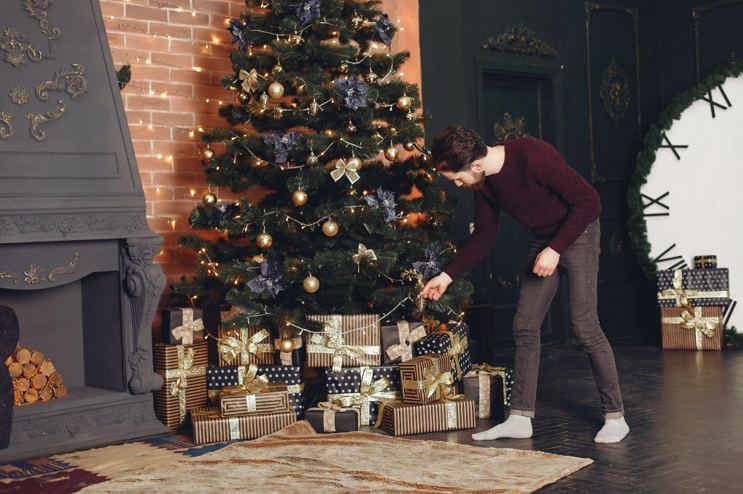The History of Christmas and Holiday Season Traditions
The Christmas and holiday season is a time of joy and warmth where families and friends come together to celebrate old traditions and create new memories. Many of these traditions date back centuries and carry a rich history and deep meaning. Let’s dive into the history behind some of our most cherished Christmas traditions.
Decorations
One of the most well-known traditions of Christmas is decorating the Christmas tree. The origins of this tradition date back to the 16th century in Germany when devout Christians brought trees into their homes and decorated them with candles. The tradition eventually spread across Europe and the United States, where people started using electric lights instead of candles.
Christmas wreaths are also a sight to behold during the holiday season. In ancient Rome, wreaths were symbols of victory made from plants like laurel and ivy. During Christmas, wreaths of holly, pine, and other evergreens hang on doors, symbolizing eternity and everlasting life.
Food
Food plays a significant role in Christmas and holiday season celebrations. Many of our traditional holiday foods have fascinating histories and origins. For example, the Yule log cake is a classic dessert in many European cultures. It dates back to medieval times and symbolizes the yule log’s burning, a pagan winter solstice tradition.
In Italy, the Feast of Seven Fishes is a traditional Christmas Eve dinner where seven types of seafood are served to represent the seven sacraments. In the Philippines, Christmas celebrations are complete with bibingka and puto bumbong, two traditional desserts made of rice and coconut milk often eaten after the evening Mass.
Religious Customs
The Christmas and holiday season is also a time of religious significance for many people worldwide. For Christians, the season marks the birth of Jesus Christ, and religious customs often revolve around this event.
In Mexico, the celebrations start on December 16th with Las Posadas – a reenactment of Mary and Joseph’s journey to Bethlehem. The nine-day festival ends on December 24th with midnight Mass. In Israel, thousands of Christian pilgrims gather yearly at Bethlehem’s Church of the Nativity to celebrate Christmas Mass.
In addition to Christmas, many other religious holidays are celebrated during the holiday season. These include Hanukkah, Kwanzaa, and Diwali, all with unique customs and traditions.
Creating New Traditions
While it’s important to honor and cherish old traditions, it’s also essential to create new ones and make the holiday season unique for your family and loved ones. Here are some ideas to get you started:
Volunteer
The holiday season is a giving time, and volunteering is an excellent way to spread joy and cheer. You can volunteer at a local food bank, homeless shelter, or hospital. Plenty of virtual volunteer opportunities are available for those who can’t be there in person.
Movie Night
Gather your family and friends and host a movie night. Choose a classic holiday film like It’s a Wonderful Life or A Christmas Carol, or choose something new like Elf or The Grinch.
Secret Santa
Gift-giving is a significant part of the holiday season but can get expensive. Instead of buying individual gifts for everyone, try organizing a Secret Santa gift exchange. Participants draw names from a hat and buy a gift for the person they picked. It’s a fun way to exchange gifts without breaking the bank.
Conclusion
The holiday season is a time of warmth, love, and togetherness. Whether you’re celebrating Christmas, Hanukkah, Kwanzaa, or Diwali, this time of year is an opportunity to create memories and traditions that will last a lifetime. Each tradition carries a rich history and significance, from decorating the Christmas tree to preparing traditional holiday foods. Creating new practices and cherishing old ones can make the holiday season joyful and celebrated. Happy holidays from our family to yours!
